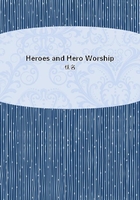
第67章
By far the most interesting fact I hear about the Chinese is one on which we cannot arrive at clearness, but which excites endless curiosity even in the dim state: this namely, that they do attempt to make their Men of Letters their Governors! It would be rash to say, one understood how this was done, or with what degree of success it was done. All such things must be very unsuccessful; yet a small degree of success is precious; the very attempt how precious! There does seem to be, all over China, a more or less active search everywhere to discover the men of talent that grow up in the young generation. Schools there are for every one: a foolish sort of training, yet still a sort. The youths who distinguish themselves in the lower school are promoted into favorable stations in the higher, that they may still more distinguish themselves,--forward and forward: it appears to be out of these that the Official Persons, and incipient Governors, are taken. These are they whom they _try_ first, whether they can govern or not. And surely with the best hope: for they are the men that have already shown intellect. Try them: they have not governed or administered as yet; perhaps they cannot; but there is no doubt they _have_ some Understanding,--without which no man can! Neither is Understanding a _tool_, as we are too apt to figure; "it is a _hand_ which can handle any tool." Try these men: they are of all others the best worth trying.--Surely there is no kind of government, constitution, revolution, social apparatus or arrangement, that I know of in this world, so promising to one's scientific curiosity as this. The man of intellect at the top of affairs: this is the aim of all constitutions and revolutions, if they have any aim. For the man of true intellect, as I assert and believe always, is the noble-hearted man withal, the true, just, humane and valiant man. Get him for governor, all is got; fail to get him, though you had Constitutions plentiful as blackberries, and a Parliament in every village, there is nothing yet got!--These things look strange, truly; and are not such as we commonly speculate upon. But we are fallen into strange times; these things will require to be speculated upon; to be rendered practicable, to be in some way put in practice. These, and many others. On all hands of us, there is the announcement, audible enough, that the old Empire of Routine has ended;that to say a thing has long been, is no reason for its continuing to be.
The things which have been are fallen into decay, are fallen into incompetence; large masses of mankind, in every society of our Europe, are no longer capable of living at all by the things which have been. When millions of men can no longer by their utmost exertion gain food for themselves, and "the third man for thirty-six weeks each year is short of third-rate potatoes," the things which have been must decidedly prepare to alter themselves!--I will now quit this of the organization of Men of Letters.
Alas, the evil that pressed heaviest on those Literary Heroes of ours was not the want of organization for Men of Letters, but a far deeper one; out of which, indeed, this and so many other evils for the Literary Man, and for all men, had, as from their fountain, taken rise. That our Hero as Man of Letters had to travel without highway, companionless, through an inorganic chaos,--and to leave his own life and faculty lying there, as a partial contribution towards _pushing_ some highway through it: this, had not his faculty itself been so perverted and paralyzed, he might have put up with, might have considered to be but the common lot of Heroes. His fatal misery was the _spiritual paralysis_, so we may name it, of the Age in which his life lay; whereby his life too, do what he might, was half paralyzed! The Eighteenth was a _Sceptical_ Century; in which little word there is a whole Pandora's Box of miseries. Scepticism means not intellectual Doubt alone, but moral Doubt; all sorts of infidelity, insincerity, spiritual paralysis. Perhaps, in few centuries that one could specify since the world began, was a life of Heroism more difficult for a man. That was not an age of Faith,--an age of Heroes! The very possibility of Heroism had been, as it were, formally abnegated in the minds of all. Heroism was gone forever; Triviality, Formulism and Commonplace were come forever. The "age of miracles" had been, or perhaps had not been; but it was not any longer. An effete world; wherein Wonder, Greatness, Godhood could not now dwell;--in one word, a godless world!